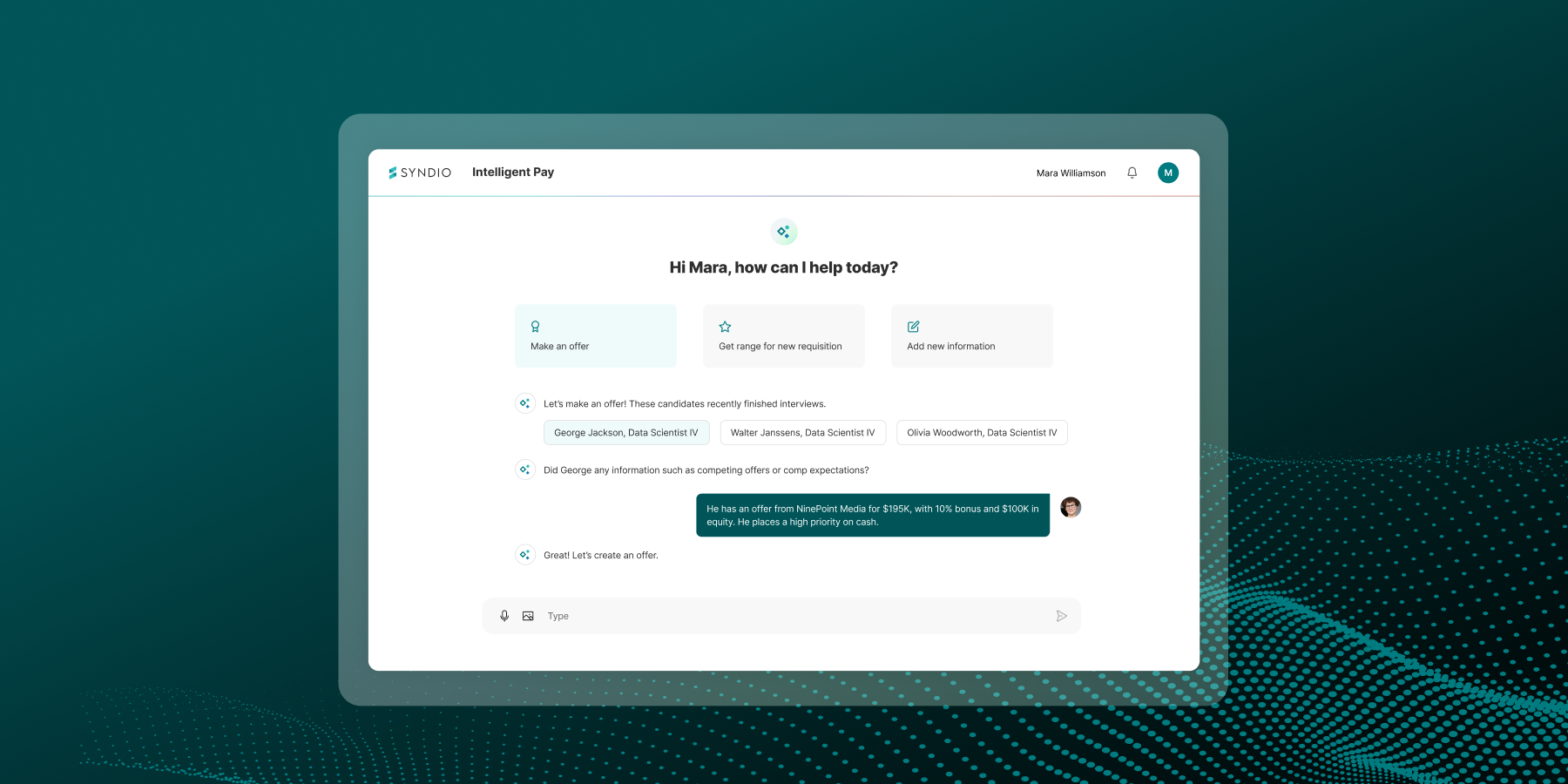When it comes to pay equity, there are more choices than ever before — law firms, consultants, and now pay equity tech. And with heightened expectations from employees, legislators, and investors, many leading companies are moving away from traditional solutions (manual, one-off analyses performed in-house or with law/consulting firms). Because one-time, static analyses are approached as backward-facing audits, they simply don’t have the agility or capability to prevent inequities from cropping up again and again. Instead, companies are turning to purpose-built pay equity technology to gain efficiencies and create a more proactive, preventive approach.
So, whether you’re looking for a platform to complete your first pay equity analysis or are hoping to upgrade your existing process with technology, it’s important to evaluate all your options and choose the best provider for your goals.
Get the right people involved
In the past, pay equity has often been thought of as the domain of legal teams and economists. But as fair pay becomes a key component of an organization’s human capital, investor relations, and even brand strategies, this mindset is shifting.
Before you start asking questions, the first step in finding the right pay equity provider is to bring together a cross-functional team, including leaders from Compensation/Total Rewards, Human Resources, DE&I, Legal (internal or third-party), and IT.
Then, use the questions below to guide your team’s evaluation process and help you make the right decision for your business. Make sure you dig into the provider’s analysis process, support, and long-term vision to ensure you’re partnering with someone who will be as invested as you are in your continued growth.
TL;DR: Not all pay equity tech is the same. We recommend you dig in.
Key questions to ask pay equity tech providers
Pay equity analysis process:
- How easily and quickly are you able to upload your data? Do you have to configure your data according to a specific template? How often can you refresh data, and can you do so without having to recreate your work? Has the platform been tested to ensure that it can ingest and quickly analyze large data sets?
- Can you analyze all types of compensation (e.g., base salary, bonus, equity, incentive plans) and all comparable groups you want to consider (e.g., gender, race, disability, veteran, or caregiver status, intersectionalities)?
- What type of analysis does the software run (e.g., regression, rank-sum), and why did they choose it?
- How quickly and easily can you run an analysis? Do they support your use cases (e.g., remote, international/global)? Do they have features that help streamline those use cases?
- Do they offer tools that help you determine a remediation strategy and budget based on your constraints (e.g., excluding employees on a PIP, caps and floors for adjustments, etc.)?
Pay disparity prevention:
- Can they explain how their software identifies root causes of pay issues?
- Do they provide real-time recommendations for pay decisions (i.e., starting salaries, promotions, and lateral moves)?
- Can you analyze the impact of proposed compensation changes before they go into effect?
- Do they provide tools to help you understand if your compensation policies are operating as intended?
Support and expertise:
- Does the team that will be supporting you have experience navigating the legal side of pay equity, including pay equity class action lawsuits?
- Do they have people on staff who have led pay equity analyses for notable companies?
- Do they have reporting tools and/or services that help you confidently communicate your pay equity analysis results and progress to stakeholders, including employees, investors, and more?
- What is the support model? Do they provide ongoing guidance around grouping employees, applying controls, and assigning a remediation plan, as well as ongoing communication to stakeholders?
- What is their support pricing model? Do they charge for any support and consulting by the hour? Will you know to the penny how much it will cost to work with them for a year?
Data security & legal compliance:
- Have they thought through attorney-client privilege and can they explain what features exist to preserve it?
- Can they explain how they would handle discovery requests, and what actions or transactions are recorded and tracked?
- Is the vendor’s analysis and remediation methodology compliant with EEOC and DFEH expectations and methods?
- Can the vendor help you conduct privileged pay analysis for each establishment — and prove it to OFCCP without waiving privilege?
- Can they help you run statutory pay reports in countries like the UK, France, and Switzerland, and in California and other states?
- What measures do they have in place to ensure the highest data security? Do they have any data security certifications (e.g., SOC 2 Type 2 certification)? Do they comply with GDPR requirements?
Their customers:
- What does their typical customer profile look like (e.g., enterprise vs. SMB, global workforce vs. U.S.-only, etc.)?
- Do they have customers of your size and/or in your industry?
- Are they able to provide testimonials, case studies, or references from their customer base?
What else they offer:
- Can the vendor help you address median pay gaps by analyzing equity representation and opportunities, in addition to pay?
- What is their long-term product roadmap, including key capabilities coming out in the new year?
Get the answers you need from Syndio
To learn more about why many of the world’s leading brands trust Syndio for pay equity, check out our resources below or request a one-on-one demo to talk with one of our experts about these questions.
The information provided herein does not, and is not intended to, constitute legal advice. All information, content, and materials are provided for general informational purposes only. The links to third-party or government websites are offered for the convenience of the reader; Syndio is not responsible for the contents on linked pages.



